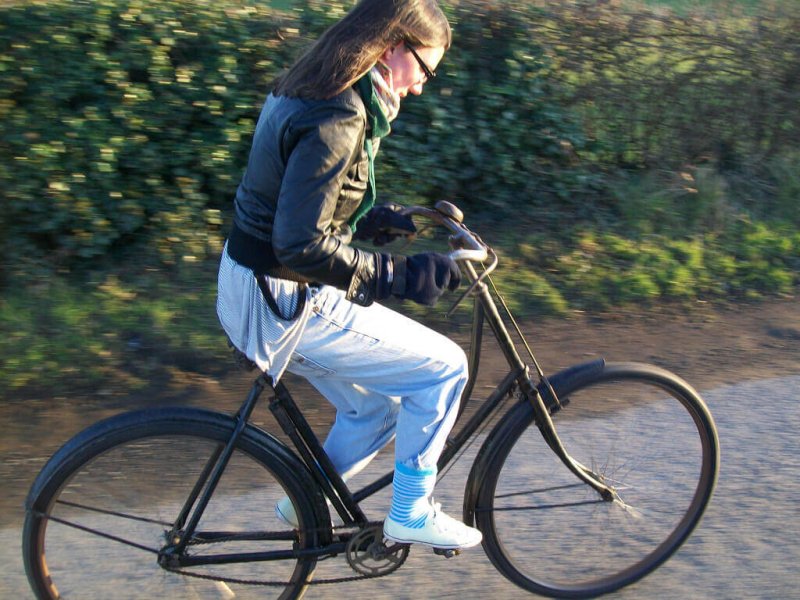So how is it that we can ride a bicycle when we haven’t done so in years? As it turns out, different types of memories are stored in distinct regions of our brains. Long-term memory is divided into two types: declarative and procedural.
…
[D]eclarative memory content [has] one thing in common—you are aware of the knowledge and can communicate the memories to others.Skills such as playing an instrument or riding a bicycle are, however, anchored in a separate system, called procedural memory. As its name implies, this type of memory is responsible for performance.
…
Even with traumatic brain injury the procedural memory system is hardly ever compromised. That’s because the basal ganglia, structures responsible for processing nondeclarative memory, are relatively protected in the brain’s center, below the cerebral cortex. However, it’s not clear, beyond brain damage, why procedural memory contents are not as easily forgotten as declarative ones are. According to one idea, in the regions where movement patterns are anchored fewer new nerve cells may be formed in adults. Without this neurogenesis, or continuous remodeling in those regions, it’s less likely for those memories to get erased.
One thing we know for sure, however, is simple sequences of movements we internalize, even far in the past, are typically preserved for a lifetime. Or as the saying goes, it’s “just like riding a bicycle.”
Read full, original post: Why Don’t We Forget How to Ride a Bike?































